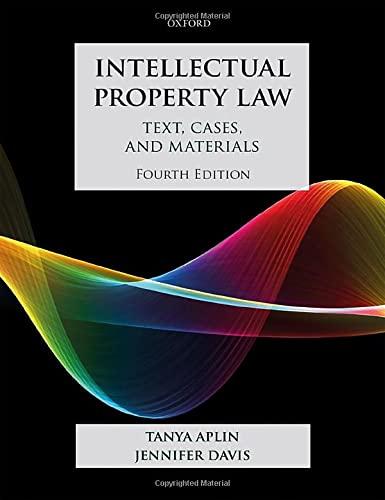Answered step by step
Verified Expert Solution
Question
1 Approved Answer
https://www.law.cornell.edu/supremecourt/text/13-132 What are the major differences between Riley's search after arrest and Wurie's search after arrest? The Fourth Amendment requires a warrant based on probable
https://www.law.cornell.edu/supremecourt/text/13-132
- What are the major differences between Riley's search after arrest and Wurie's search after arrest?
- The Fourth Amendment requires a warrant based on probable cause before police can search a person.One of the exceptions to the Fourth Amendment is a reasonable "search incident to a lawful arrest" (Riley, p. 5).The Court uses theChimel(p. 6),Robinson(p. 7), andGant(p. 8) case opinions as precedent.Briefly explain the rule fromChimel.
- Briefly explain the rule fromRobinson.
- Briefly explain the rule fromGant.
- TheRileyCourt talks about a "balancing test" on page 9.How does theRileyCourt apply this test to the warrantless search of cell phones?
- What is the new rule/test that theRileyCourt creates?
- What is your opinion of theRileyCourt's analysis?
Step by Step Solution
There are 3 Steps involved in it
Step: 1

Get Instant Access to Expert-Tailored Solutions
See step-by-step solutions with expert insights and AI powered tools for academic success
Step: 2

Step: 3

Ace Your Homework with AI
Get the answers you need in no time with our AI-driven, step-by-step assistance
Get Started


